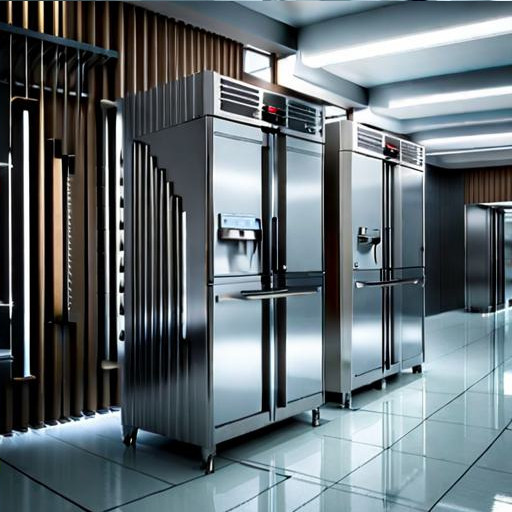

Commercial air conditioning units play a vital role in maintaining comfortable indoor environments for businesses and institutions. Proper maintenance is essential to ensure their efficiency and longevity. In this article, we'll answer some important questions about commercial AC units and their maintenance.
Commercial air conditioning units should ideally be serviced at least twice a year. Regular maintenance in the spring and fall helps ensure optimal performance during the peak cooling and heating seasons. This preventive approach can help identify and address potential issues before they become major problems.
Commercial HVAC maintenance involves a series of tasks to keep heating, ventilation, and air conditioning systems running smoothly. This includes cleaning or replacing air filters, inspecting and lubricating moving parts, checking refrigerant levels, and testing system controls. It also includes cleaning the condenser and evaporator coils, as well as checking for leaks and ductwork integrity.
The average life expectancy of a well-maintained commercial air conditioning system is around 15 to 20 years. However, this can vary based on factors like the quality of installation, regular maintenance, and the system's workload. Some systems may last even longer with proper care.
A commercial air conditioning unit is commonly referred to as a "Commercial HVAC System." These systems are designed to handle larger spaces and higher cooling or heating demands compared to residential units.
The lifespan of a commercial AC compressor depends on several factors, including usage, maintenance, and environmental conditions. On average, a well-maintained compressor can last between 10 to 15 years. However, neglecting maintenance can significantly reduce its lifespan.
Regular maintenance for commercial AC units should include the following tasks:

Cleaning your AC unit on an annual basis is generally a good practice to maintain its efficiency and prolong its lifespan. Here's why regular cleaning is essential:
1. Efficiency and Performance: Over time, dust, dirt, and debris can accumulate on the evaporator and condenser coils, as well as on the air filters. This buildup restricts airflow and reduces the system's ability to exchange heat effectively. When coils are dirty, the AC unit must work harder to cool or heat the air, which increases energy consumption and utility bills. Regular cleaning ensures that your AC unit operates efficiently, delivering consistent comfort and potentially lowering energy costs.
2. Indoor Air Quality: A clean AC system contributes to better indoor air quality. As air passes through the system, it encounters the air filter, which traps particles like pollen, dust, and allergens. Over time, filters become clogged, decreasing their effectiveness. This can lead to poor indoor air quality and potential health issues for building occupants. By cleaning or replacing filters regularly, you can maintain clean and healthy indoor air.
3. Prevention of Costly Repairs: Neglecting AC unit cleaning can lead to more significant issues down the road. For example, dirty coils can freeze, leading to compressor damage or refrigerant leaks. Blocked condensate drains can cause water damage, and a dirty blower fan can become less efficient, resulting in overheating. By cleaning your AC unit annually, you can catch and address minor issues before they escalate into costly repairs.
4. Prolonged Lifespan: Regular maintenance, including cleaning, can significantly extend the lifespan of your AC unit. When components are free from dirt and debris, they experience less wear and tear. This can add years to the life of your system, ultimately saving you money on premature replacements.
5. Warranty Compliance: Some manufacturers require regular maintenance, including cleaning, to maintain the warranty on your AC unit. Neglecting this maintenance may void your warranty, leaving you responsible for any repairs or replacements out of pocket.
In summary, cleaning your AC unit annually is a wise investment in both energy efficiency and the longevity of the system. It ensures optimal performance, better indoor air quality, and helps prevent costly repairs. Regular maintenance not only keeps your commercial AC unit running smoothly but also contributes to a healthier and more comfortable indoor environment for your business or institution.
Yes, air conditioning units require regular servicing to ensure they operate at their best. Neglecting maintenance can lead to reduced efficiency, higher energy costs, and premature system failure. Investing in routine servicing can save businesses money in the long run by preventing costly repairs and premature replacements.
In conclusion, commercial air conditioning units play a crucial role in maintaining comfortable indoor environments for businesses. Regular maintenance is key to their longevity and efficiency. By following a maintenance schedule and addressing issues promptly, businesses can ensure that their commercial HVAC systems provide reliable performance for many years.
Last Update: September 2023